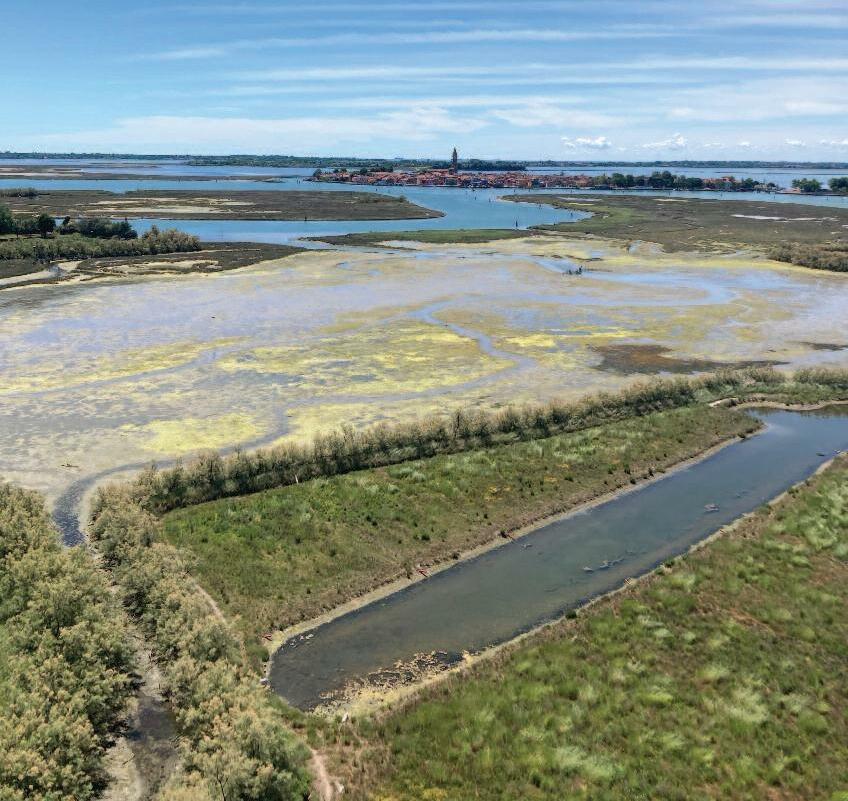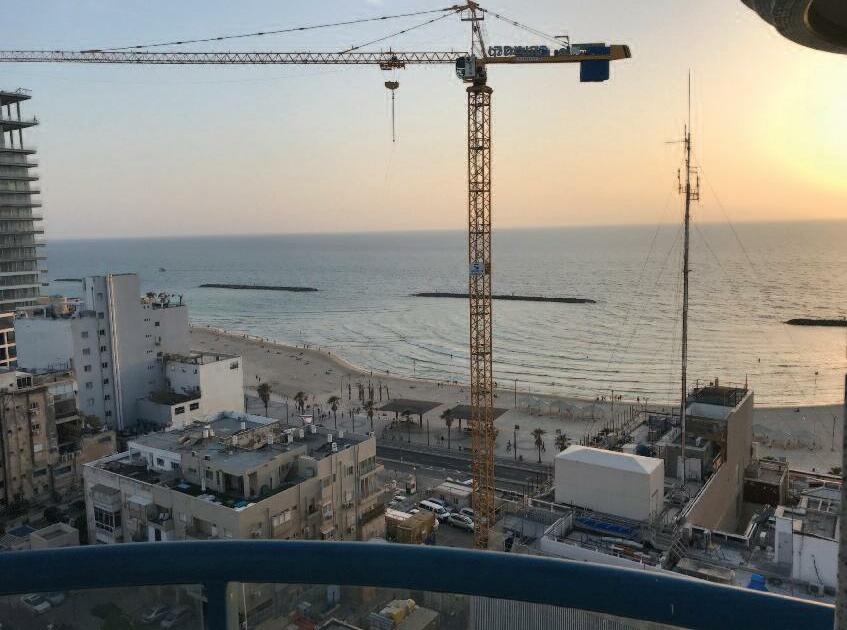
7 minute read
Science and Human Dimension Project
Jonathan Cornwell, Executive Director
In 2021-22, the project has focused on public understanding of climate change in the Mediterranean. A constituency of climate scientists, backed by the Intergovernmental Panel on Climate Change (IPCC), sees the virtually enclosed Mediterranean, and its bordering countries, as a microcosm of the planet in peril. The consequences of climate change are destined to hit the Mediterranean in advance of other populated regions. Comprising populations of 500 million in its neighbouring countries and 300 million visitors every year, the Mediterranean is an environment of outstanding beauty, ecological richness, and cultural scope. Historically, there are long and deep chronicles of environmental impacts, showing how communities and societies have reacted –with resilience and at times with despair and conflict. The world has much to learn from the Mediterranean as the climate crises unfold.
Advertisement
We convened a workshop on 26 May 2022, to discuss the shape of a future two-to-three-day conference. John Cornwell emphasised the Science and Human Dimension Project (SHDP founded 1990 at Jesus College) as a public programme to enhance scientific understanding, and the importance of involving journalists in proceedings to achieve outreach. He also discussed the crucial importance of accessibility of material and presentations.

Tel Aviv, Israel, where new builds are at an all-time high
The aim of the SHDP contribution to climate change studies was to introduce perspectives from the humanities – History, Anthropology, Literature, Philosophy, Religion; and the Social Sciences. More workshops were planned ahead of a conference in 2023.
The workshop was hosted and chaired by Professor Alan Short, President of Clare Hall, Professor of Architecture, and author of Recovery of Natural Environments in Architecture. Tom Spencer, Professor of Coastal Dynamics, and Director of Cambridge Coastal Research Unit opened with a discussion of ‘Risks ’ , a product of hazards, vulnerability and exposure. Hazards can be progressive, chronic (sea level rise) or episodic and acute (flash floods, storm surges). Landscapes can respond to both climatically driven processes and non-climatic changes, and all these changes need to be accommodated in a space for nature. Micro-tidal systems are particularly vulnerable to sea level rise, and the Mediterranean is a collision zone between the northward moving African plate (2cm per year) and the Eurasian plate, characterised by sediment starved, rocky coast. The rivers and deltas – the Ebro, the Rhône, the Po and the Nile – have reduced sediment supply so we have a relict delta, with coastal retreat at times reaching 50m per year and increasing saltwater intrusion with implications for groundwater security. The risks include: • Impacts of heatwaves – on human health and morbidity, on ecosystems – risk of forest fires • Losses in agricultural production (from heat and drought) • Water scarcity • Impact of floods on people, economies and infrastructure Professor Alan Short spoke on the importance, especially in the Mediterranean region, of designing buildings for natural air conditioning. He described how he and colleagues
used wind catchers and stone in the design of early zero-carbon buildings. He cited a brewery in Malta in which they managed to drop the temperature 14°C below the peak temperature outside. In China, they used wind tower-inspired methods to make air circulate in modern 25-storey buildings. He said, “We ’ ve tried to build back into the towers the advantages of these traditional houses in the Middle East, ” adding that the COVID-19 pandemic underlined the need for natural ventilation in buildings to help flush viruses out of buildings.
Dr Emma Boland, a Physical Oceanographer at the Cambridge Centre for Climate Science, warned that the Mediterranean region is heating 20 per cent more than the average across the planet, and the waters are become increasingly salty. Dr Alison Ming, a Leverhulme Trust Early Career Research Fellow in the atmosphere-ocean dynamics group at the Department of Applied Mathematics and Theoretical Physics, focused on modelling of the stratosphere and how the expanding and moving dry zone, the Sahara, could be moving north.
Dr Fernanda Gallo, from the Department of History and the ‘Mediterranean History Cluster ’ , spoke of the current interest in climate history and the influence of Fernand Braudel. There are deep and wide records on reactions to climate and environment change, and it is tempting to see trends from the past applied to the present and the future. She recommended reading the work of Pierre Charbonnier including Affluence and Freedom: An Environmental History of Political Ideas. Charbonnier aims to show that political ideas, whether or not they endorse ecological ideals, are informed by a certain conception of our relationship to the Earth and to our environment. Political categories of modernity are founded on the idea that we could improve on nature, that we could exert a decisive victory over its excesses and claim unlimited access to earthly resources. Hence modern thinkers imagine a political society of free individuals, equal and prosperous, alongside the development of industry geared towards progress and liberated from the Earth’ s shackles.

Dr John Sellars of the Philosophy Department, Royal Holloway, University of London, discussed the ‘Mediterranean ’ thought of the Stoics. Referencing the ideas and work of Posidonius and Marcus Aurelius, he discussed the ancient idea of nature as an organic unity – a change in one part will affect the other (similar to Lovelock’ s Gaia). Posidonius, moreover, believed it crucial to understand the physical origins of earthquakes, volcanoes and adverse weather, in order to face them with resilience.
Dr Rebecca Watson of the Cambridge Theological Federation talked of the relationship between the Bible and expectation of major environmental events. She said that ‘ chaos ’ , the language of cosmic instability, was a framework through which to debate the necessity, extent and causation of threat and disorder in the world. It recognises that at times our experience may be one of good order, but at other times we might feel under threat. This imagery offers a spectrum of models for understanding the relation of religion, spirituality and humanity, to the presence or absence of order in the world. Although certain passages are vulnerable to being utilised to justify the abrogation of human responsibility, this is not a fair reading. She mentioned the role of world faiths in caring for nature and climate change, citing Pope Francis ’ s Laudato Si’ as a major contribution in caring for the environment.
Dr Tugba Basaran, Deputy Director of the Centre for the Study of Global Human Movement at the University of Cambridge (with special interest in migration in the Mediterranean), proposed a focus on governance of the Mediterranean Sea –as counterposed to the Mediterranean region as a formation of states that share a coastline. This is a shift of emphasis from separate political powers on land to the common resource of the sea, constituted through nature, politics and law. At the centre of many engagements on governance is state authority and jurisdiction as the starting point, triggering queries on the state ’ s boundaries and borders, meticulously drawn lines that separate and define exclusive territories. This leads to questions of power, mechanisms for cooperation and/or the role of international institutions within a system of states.
Professor Brendan Simms, Director of theCentre for Geopolitics and Professor of the History of European International Relations, expressed his interest in the topic from the point of view of Geopolitics, especially at the eastern end of the Mediterranean. He reminded us that conflict gives impetus to significant environmental damage, hence contributing to lasting climate change. The Centre for Geopolitics, which had been focussing on the Baltic, is planning to take the Mediterranean into its scope, and we are now considering how they could contribute to the project.
Matters raised in discussion included the need for involvement of Marine Biology, Anthropology, Literature and the travel industry. A two-day conference was proposed for 2023, potentially as a joint venture with Clare Hall, and in close collaboration with Mediterranean Institute for Marine and Terrestrial Biodiversity and Ecology at Aix-en-Provence (IMBE) under the direction of Professor of Global Ecology, Wolfgang Cramer.
In separate consultations and meetings relating to the workshop, we discussed the Late Bronze Age Collapse with Professor Lord Renfrew; the work of Amitav Ghosh and A Politics of Climate Change with Professor Duncan Kelly; how our project might relate to other climate change initiatives in Cambridge with Dr Mike Rands, Master of Darwin College and former Executive Director of the Cambridge Conservation Initiative; plastics pollution with Professor Tony Riley, University of Sheffield.
Our advisory panel for the Mediterranean Project: Dr Fernanda Gallo, Dr Rebecca Watson, Professor Lord Martin Rees, Professor Lord Colin Renfrew, Professor Julian Dowdeswell, Dr Mike Rands, Professor Oren Scherman and Professor Stephen Heath. n










